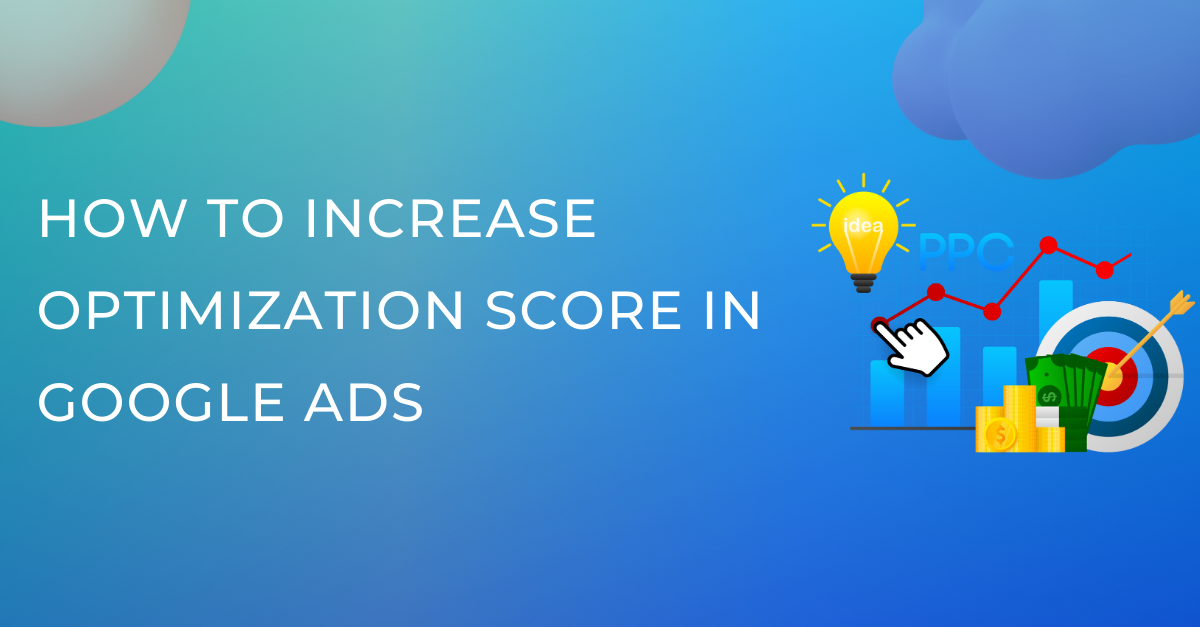In the ever-competitive world of digital advertising, mastering Google Ads is essential for achieving optimal results. “How to increase optimization score in Google Ads” is a question on the minds of many advertisers seeking to improve their campaign performance. In this comprehensive guide, we’ll explore the significance of optimization score, why it matters, and provide detailed strategies to boost your score for enhanced campaign success.
If you’re looking for a professional SEO & Digital Marketing Service Provider company to bring your creative visions to life, check out Web Info Tech Ltd. They offer a wide range of Digital Marketing Support tailored to your needs
Understanding Optimization Score in Google Ads
Before we delve into strategies, let’s clarify what optimization score in Google Ads is and why it’s a crucial metric:
Optimization Score: Optimization score is a metric that evaluates the overall health and performance of your Google Ads campaigns. It ranges from 0{a4729fc15ca6aae998eed836e18736a4dfc96d903abf2551c4f9e8b03898d297} to 100{a4729fc15ca6aae998eed836e18736a4dfc96d903abf2551c4f9e8b03898d297}, with higher scores indicating that your campaigns are well-optimized. Google Ads provides recommendations to improve your score and boost the effectiveness of your campaigns.
Why Optimization Score Matters:
- Cost-Efficiency: Higher optimization scores are often associated with lower costs per click (CPC) and better ad placement, maximizing your budget.
- Ad Rank: A strong optimization score positively impacts your ad rank, which determines your ad’s position on the search results page. A higher ad position can lead to increased visibility and clicks.
- Quality Score: Optimization score correlates with your quality score, another critical metric. A high quality score can result in lower CPC and better ad placements.
- Performance Insights: Google Ads recommendations based on your optimization score can provide valuable insights into areas for improvement, leading to better campaign performance.
Strategies to Increase Your Optimization Score in Google Ads
Now, let’s dive into actionable strategies to boost your optimization score and improve the performance of your Google Ads campaigns:
Keyword Optimization:
- Negative Keywords: Regularly review and add negative keywords to prevent your ads from showing for irrelevant queries.
- Keyword Match Types: Utilize a mix of broad, phrase, and exact match keywords to fine-tune your targeting.
Ad Copy Enhancement:
- A/B Testing: Continuously test and optimize your ad copy for better click-through rates (CTR) and conversions.
- Ad Extensions: Make use of ad extensions like sitelinks, callouts, and structured snippets to provide more information and encourage clicks.
Landing Page Optimization:
- Relevance: Ensure landing pages are highly relevant to the ad’s messaging and keywords.
- Page Speed: Optimize landing page load times for a better user experience.
Ad Schedule Adjustments:
- Dayparting: Analyze your data to determine the most effective times to run your ads. Adjust your ad schedule accordingly.
Geo-Targeting Refinement:
- Location Analysis: Review location data to identify high-performing and underperforming areas. Adjust your bid adjustments accordingly.
Device Targeting:
- Mobile Optimization: Tailor ad campaigns for mobile devices and consider mobile-specific ad copy and landing pages.
Budget Allocation:
- Campaign Performance: Regularly review campaign performance and allocate budget based on what’s working best.
Ad Group Structuring:
- Relevance: Ensure each ad group is tightly themed with relevant keywords, ad copy, and landing pages.
- Keyword Expansion: Continuously expand ad groups with new, relevant keywords.
Quality Score Improvement:
- Keyword Relevance: Focus on improving keyword relevance in ad groups to boost quality scores.
- Landing Page Experience: Enhance landing pages for a better user experience.
Audience Targeting:
- Custom Audiences: Implement custom audience targeting for remarketing campaigns.
- Demographic Insights: Leverage demographic data to refine audience targeting.
Ad Placement Review:
- Network Performance: Analyze the performance of your ads on the Google Display Network and adjust settings as needed.
Automated Bidding:
- Smart Bidding Strategies: Consider using automated bidding strategies like Target CPA or Target ROAS to optimize for conversions.
Regular Optimization and A/B Testing
Optimization is not a one-time effort but an ongoing process. Here’s how to approach regular optimization and A/B testing:
- Regular Monitoring: Continuously monitor your campaigns, ad groups, and keywords.
- Ad Copy Testing: A/B test different ad copy variations to identify what resonates best with your audience.
- Landing Page Testing: Experiment with different landing page designs and content to determine the most effective configurations.
- Keyword Expansion: Regularly expand your keyword list to capture new search queries and opportunities.
- Bid Adjustments: Adjust bids based on performance data and goals.
Reporting and Data Analysis
Data analysis is vital for optimizing your campaigns effectively. Here’s how to leverage reporting and data analysis:
- Conversion Tracking: Implement conversion tracking to measure campaign success.
- Google Analytics Integration: Integrate Google Analytics to gain in-depth insights into user behavior.
- Attribution Models: Explore various attribution models to understand how different touchpoints contribute to conversions.
Final Thought
Increasing your optimization score in Google Ads is a continuous process that involves a combination of effective strategies, regular monitoring, and data analysis. By fine-tuning your campaigns, ad groups, keywords, and ad copy, you can improve the overall health and performance of your Google Ads campaigns.




